It's not called the wheel, it's called the carousel. It lets us travel the way a child travels - around and around, and back home again, to a place where we know are loved. – Don Draper, Mad Men
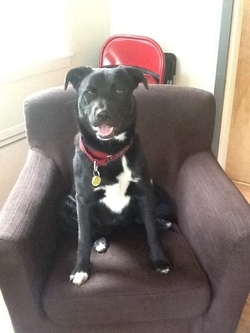 Cool Dog
Cool Dog The other day, M asked if I was waiting / hoping / believing I'd “finish” grieving Dad. Not at all, though I have noticed changes in the intensity and quality of grieving, as well as the amount of time and energy committed to it. And I admit, I was pretty sure I was “moving forward” if not moving on, and that the greater peace I was finding meant I had a better handle on dealing with death.
And then we had to put Ramses to sleep, and the grief is familiar and scary and sad and hard, and not at all like grieving Dad, and exactly like grieving Dad. The tears are coming from the same place, and the same brain and heart struggle in tandem to find understanding, perspective, and peace.
And then we had to put Ramses to sleep, and the grief is familiar and scary and sad and hard, and not at all like grieving Dad, and exactly like grieving Dad. The tears are coming from the same place, and the same brain and heart struggle in tandem to find understanding, perspective, and peace.
 Hot Dogs
Hot Dogs People even make and buy me meals. My sister came over and helped with my therapeutic housecleaning, something I would never have asked for without a really good reason. And a part of me doubted I had a really good reason – after all, Ramses and I had a toxic relationship that needed to end, and ultimately, needed to end in his death.
So uncomfortable though it may be, I'm deeply sad about Ramses's death. M suggests the language of “up again,” as in, “Sounds like grief over your father's death is up again for you because of Ramses.” When she said this, I immediately saw the image in my head of a hot dog carousel. “Up again” is what happens to each hot dog as it approaches the heat lamp once again. Each hot dog takes its turn with the light, returning again and again to the top position.
Thought the image is slightly nauseating (like the carousel hot dogs themselves) it is right on the nose for me. The same hot dogs are always present. They age as they continue to cook, getting more and more wrinkled, dry, and brown, but you know the truth: they never go away. They cool down and heat up, each one in its turn, ad infinitum, ad nauseum. And yes, some get taken away and others are added, but the rack always turns up the next one in line, calling your attention.
So Ramses's death calls me back to my dad's. I will always have both these figures on the grief carousel, along with my mother-in-law, the gerbil I stepped on, Aunt Gert and Uncle Fred, Paul and Dana, Dorothy and Ben, Happy Fun Ball, my professorial career, Ellen and Leland and my grandparents (known and unknown). Each one reminds me of another, and each one gets a turn in the light.
I've always felt discouraged by my apparent inability to get “past” an emotional issue that keeps coming up even after I thought I'd figured out how to handle it, what the appropriate wisdom of the situation was, what perspective it deserved, how it fit into my overall philosophy. Then the fucker would come back again, and I'd feel like I reset to zero. “Up again” means that all aspects of my experience are incorporated – taken into my body. Nothing truer.
So uncomfortable though it may be, I'm deeply sad about Ramses's death. M suggests the language of “up again,” as in, “Sounds like grief over your father's death is up again for you because of Ramses.” When she said this, I immediately saw the image in my head of a hot dog carousel. “Up again” is what happens to each hot dog as it approaches the heat lamp once again. Each hot dog takes its turn with the light, returning again and again to the top position.
Thought the image is slightly nauseating (like the carousel hot dogs themselves) it is right on the nose for me. The same hot dogs are always present. They age as they continue to cook, getting more and more wrinkled, dry, and brown, but you know the truth: they never go away. They cool down and heat up, each one in its turn, ad infinitum, ad nauseum. And yes, some get taken away and others are added, but the rack always turns up the next one in line, calling your attention.
So Ramses's death calls me back to my dad's. I will always have both these figures on the grief carousel, along with my mother-in-law, the gerbil I stepped on, Aunt Gert and Uncle Fred, Paul and Dana, Dorothy and Ben, Happy Fun Ball, my professorial career, Ellen and Leland and my grandparents (known and unknown). Each one reminds me of another, and each one gets a turn in the light.
I've always felt discouraged by my apparent inability to get “past” an emotional issue that keeps coming up even after I thought I'd figured out how to handle it, what the appropriate wisdom of the situation was, what perspective it deserved, how it fit into my overall philosophy. Then the fucker would come back again, and I'd feel like I reset to zero. “Up again” means that all aspects of my experience are incorporated – taken into my body. Nothing truer.
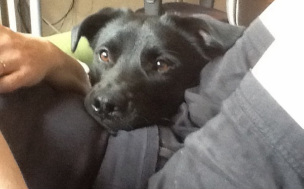

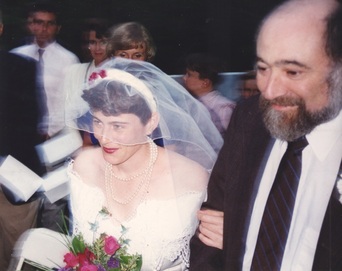
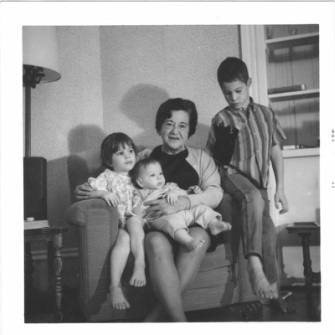
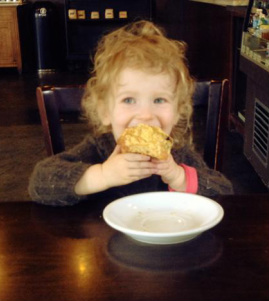
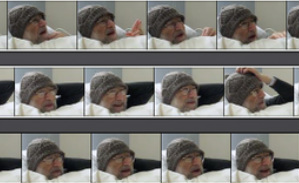
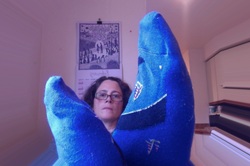
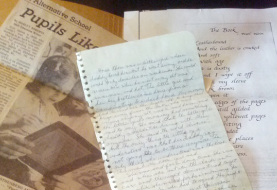
 RSS Feed
RSS Feed